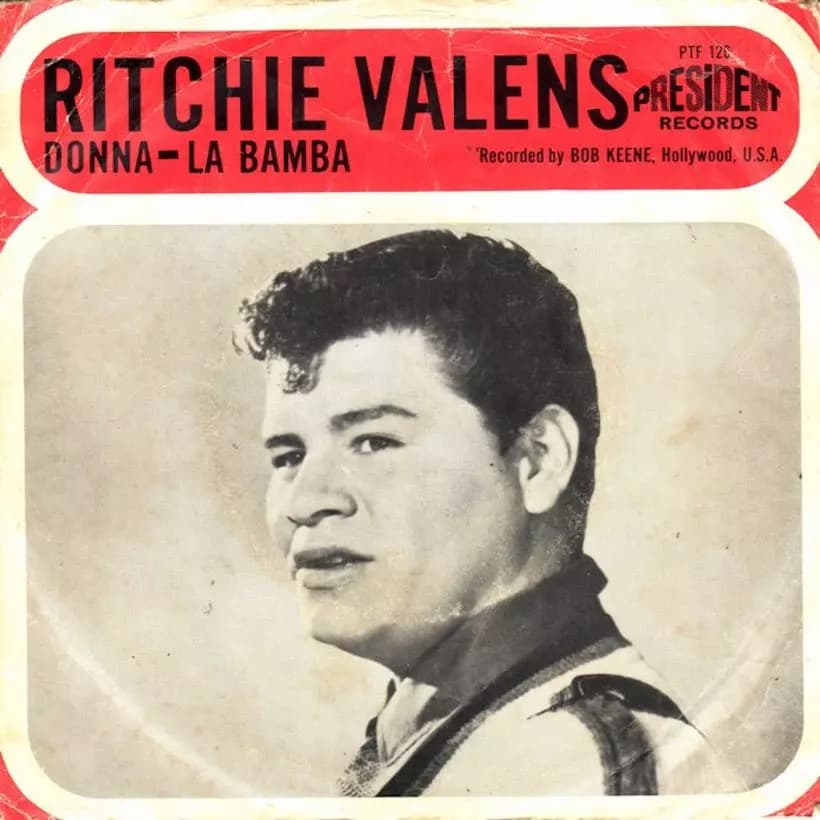
The name Ritchie Valens immediately evokes a mixture of hope and heartbreak. A talented American rock’n’roller of Mexican heritage from Pacoima, California, his life was cruelly cut short at the tender age of 17 in the tragic 1959 plane crash that also claimed the lives of iconic musicians Buddy Holly and J.P. “The Big Bopper” Richardson. Yet, amidst the shadows of this heartbreaking loss, the shine of his brief but powerful musical career remains unforgettable, particularly the classic hit “La Bamba”, which first entered the Billboard Hot 100 on December 29, 1958.
At that time, Valens was already making waves with the other side of his memorable Del-Fi label single—the soulful, dreamy ballad “Donna”. This heartfelt song about his high school sweetheart, Donna Ludwig, written by Valens himself, quickly captured hearts, climbing to an impressive No. 2 and holding a solid spot on the American charts for 23 weeks. Prior to “Donna,” Valens had debuted on the charts with the energetic and catchy number “Come On, Let’s Go” just a few months earlier in September, a song that, despite its upbeat vibe, peaked modestly at No. 42.
The Billboard’s final chart of that thrilling year was the first to list “La Bamba” on its own merit as a double A-side release, debuting at No. 81 and eventually climbing to a still respectable No. 22. Although it didn’t top the charts like “Donna,” this unforgettable adaptation of the traditional Mexican folk song became arguably the more enduring legacy of Valens’ work. Its fusion into American rock’n’roll helped cement his name as one of the pioneering artists popularizing the Chicano music strand.
The legacy of “La Bamba” did not end with Valens. The Tokens offered a minor chart version in 1962, and Trini Lopez revived the song in 1966, but it was the powerful 1987 cover by Los Lobos that reignited global attention. As the title track of the film portraying Valens’ life—starring Lou Diamond Phillips—the remake skyrocketed to the top of bestseller charts in the US, UK, Europe, and Australia, breathing new life into the song and cementing Valens’ enduring influence.
Music historian Martin Hawkins captured the essence of Valens’ brief but incandescent career in 1982:
“Ritchie Valens was hardly old enough to have assimilated too many influences in his music – what you hear is what he was. Whether, had he lived, he would have gone on to be a superstar or a discarded hero, the fact is that he had already made his mark by February 1959.”
The heartfelt lyrics of “La Bamba,” which require just “a little grace” to dance, illustrate a simple yet beautiful message that continues to resonate across generations:
Para bailar La Bamba
Para bailar La Bamba
Se necesita una poca de gracia
Una poca de gracia
Pa’ mí, pa’ ti, ay arriba, ay arriba
Y arriba, y arriba
Por ti seré, por ti seré, por ti seré
Yo no soy marinero
Yo no soy marinero, soy capitán
Soy capitán, soy capitán
Bamba, bamba
Bamba, bamba
Bamba, bamba, bam
This timeless piece calls us to celebrate not just the rhythm and dance, but the spirit of Ritchie Valens, forever etched into the annals of music history as both a pioneer and a poignant symbol of what could have been.